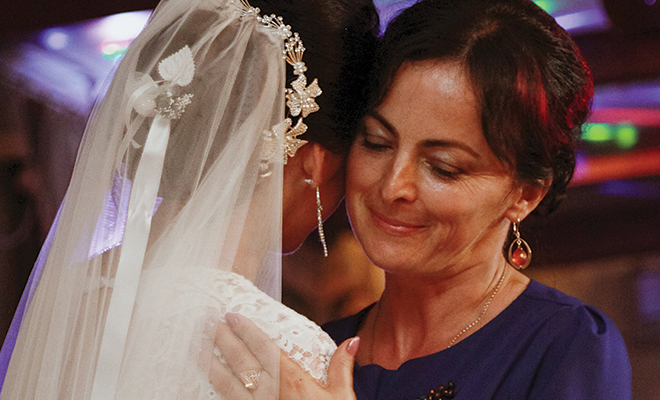
Creating a Special Wedding Day for All Involved
Yes, it is possible to plan a wedding without someone rushing out of the room in tears! Anyone who has a blended family with divorced parents, distant relatives or drama queen daughters understands this seemingly monumental task.
Communication is key, inclusion is vital and letting go of past issues is a requirement. So, when your ex-husband calls to tell you he doesn’t want your new husband at the wedding, yet your daughter doesn’t care, you bite your tongue and say, “I’m sorry you feel that way, but this day is not about you, it’s about our daughter.”
That is just one example of the myriad of tiny hurdles your family will jump before, during and after the wedding. This event comes with plenty of stress for the bride, groom and their families and friends. Money is a main factor, with couples in the United States spending more than $30,000 on their weddings. Guests make a financial investment getting to the wedding, staying there and finding that perfect gift. Members of the wedding party must purchase and wear clothes they probably don’t really like.
Let’s face it; those closest to us are often the ones on the receiving end of emotional tirades, and who is closer than family? During wedding planning, old resentments can rise to the surface. The feeling of being left out is both powerful and negative, and the nagging emotion can trigger memories of having felt this way in the past as an adult, teenager, child or even toddler.
Make sure you are emotionally prepared.
Your baby is leaving you! That is an emotion that can unrealistically come over you, when in actuality you should be proud, excited and, sometimes, relieved that your child has found a life partner. Acknowledge the impending change in your relationship and try to deal with your feelings; then you’ll have a better chance of maintaining a good connection with your daughter or son and their future spouse. It is perfectly normal to feel a barrage of emotions, and it helps to talk this over with a friend about the trouble you’re having accepting the fact that your son or daughter is separating from you, and that you’ll have to share holiday time with in-laws or deal with other changes. This way, you can avoid burdening your child with your sadness, which diminishes their excitement for their own marriage.
Try to start out on the same page and stay on the same page. That way, the dream wedding can come true. Decide what is most important. Is it a prime rib buffet at the reception, or a hotel overlooking the city? A beach wedding or ceremony in a small, quaint country church? There are so many details involved in planning a wedding. If you start feeling frustrated or disappointed, try to focus on what is most important. Ask yourself, “Whose wedding is this?” Remembering that this is your daughter’s wedding and not yours will guide you.
Of course, you may unconsciously assume things based on your own desires, not the couple’s. For example, in an interfaith marriage you may think it would be nice to have some rituals from your own religion, while your daughter may not feel the same. Remember, your child is trying to establish herself as a separate person from you as she bonds with her new partner. Don’t take control of everything, but wait to be asked.
Communicate with the future in-laws.
Even if you come from different economic, religious or ethnic backgrounds, you can be sensitive when planning together. For example, if the groom’s mom and dad lead a much more modest life than you do, consider your choice of dress so they don’t feel uncomfortable. This can be the beginning of a mutually gratifying relationship. Write a note to the groom’s parents to ask them if they have preferences. Consider that the groom is your daughter’s choice, not yours, so don’t place unreasonable expectations on him.
Leave the past in the past.
Don’t be offended if the wedding invitation doesn’t mention you. More couples are simply putting their own names on the invitation, in a format such as “Ben and Jill invite you…” This helps accommodate the complexities of blended families. And listen to your daughter and wherever she wants you and your ex/her dad to sit, sit there!
The time surrounding a wedding is no time to address resentments, and family and friends need to work to make sure they have any personal issues in check that might possibly trigger a conflict of any kind. The longstanding resentments that cause divides should be discussed in a neutral environment, not one where so much time, energy and travel have been invested. ■
Sources: cathyheenan.com, cbsnews.com and psychologytoday.com.







